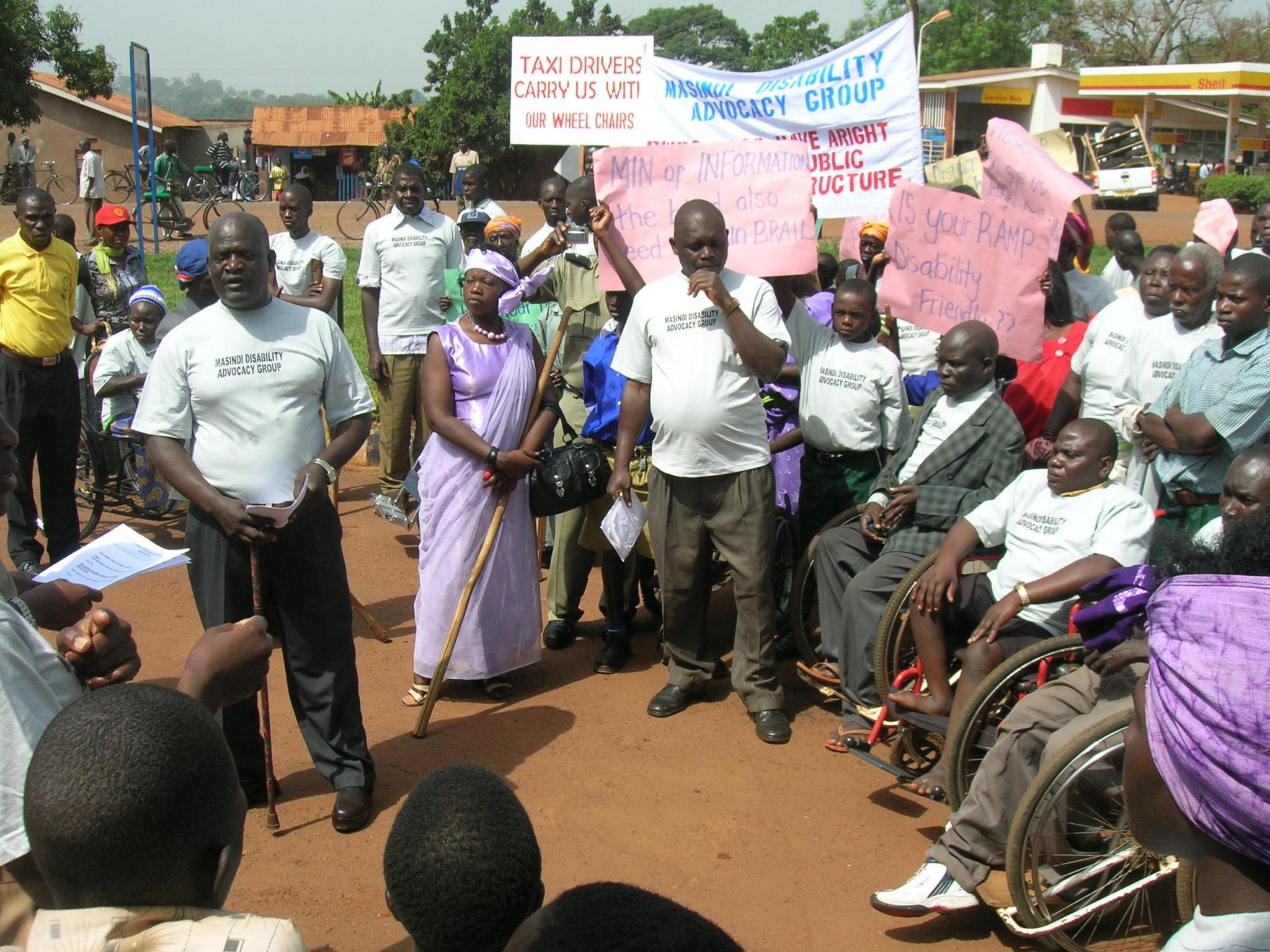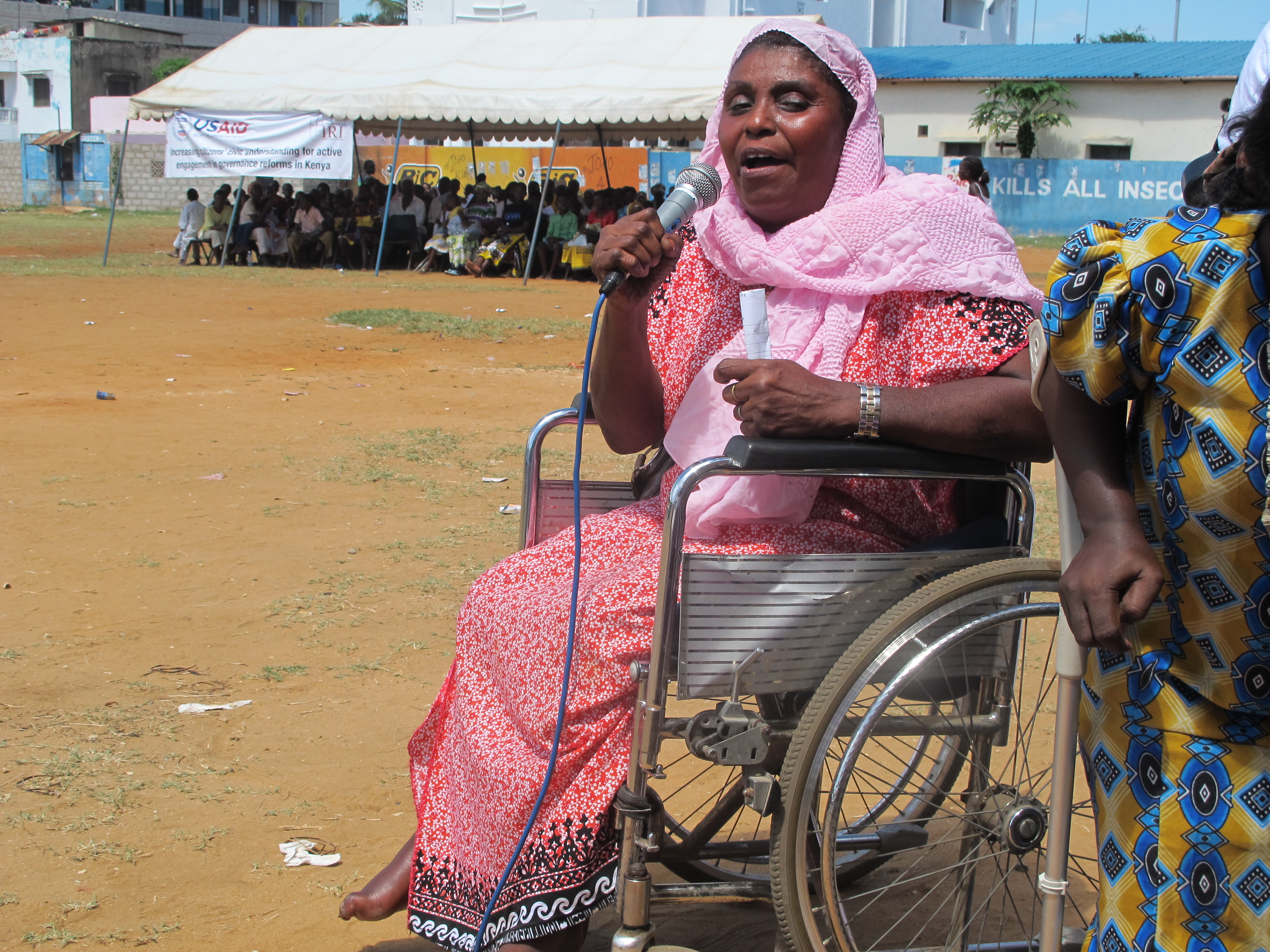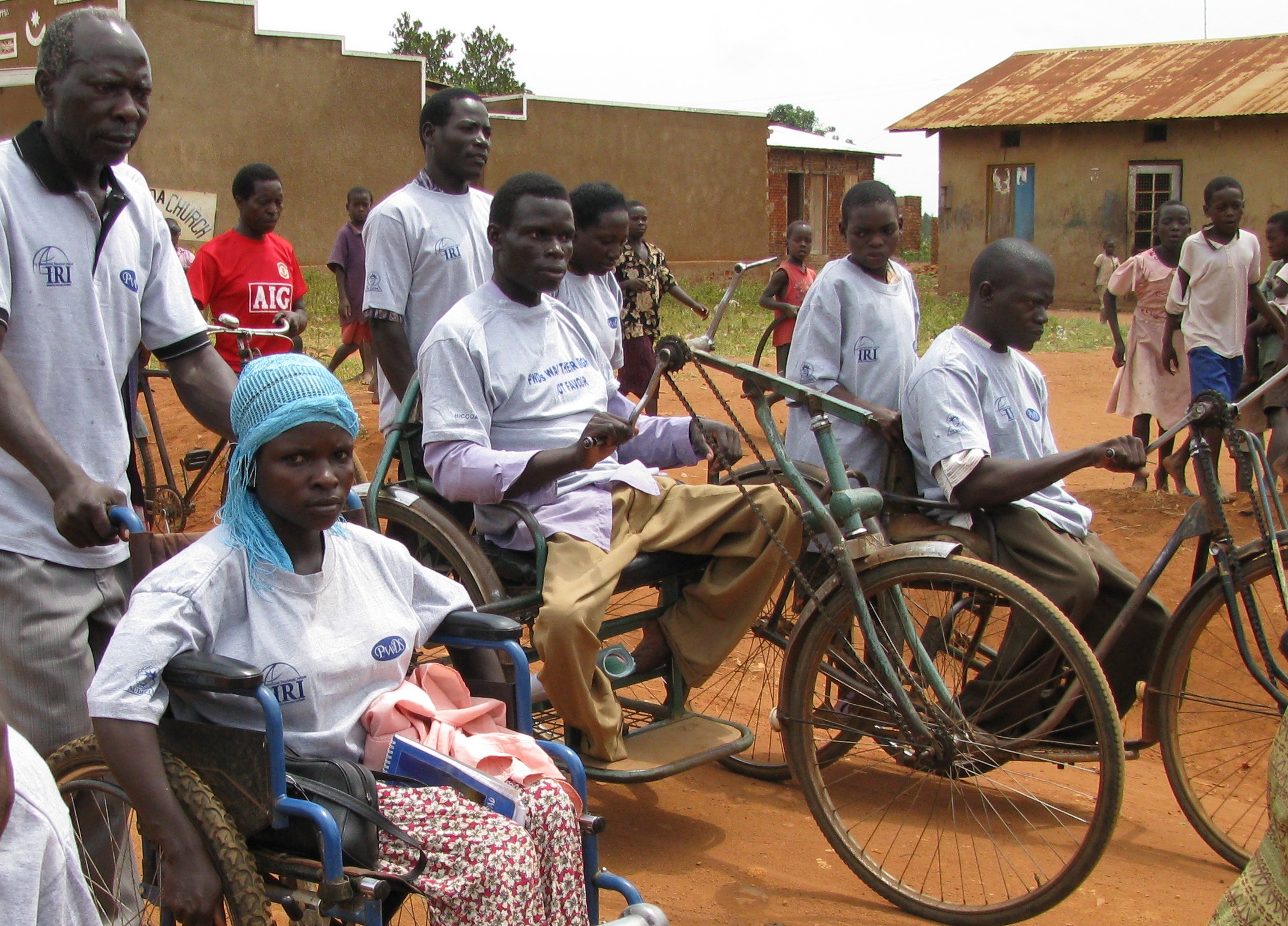Giving Voice to the Voiceless: Persons with Disabilities Advocacy in Africa

Our political party, civil society and governance initiatives are designed to give a voice to and serve the needs of the ordinary citizen. Yet in many places where we work, traditionally marginalized groups like persons with disabilities remain unrepresented in and sidelined from democratic processes.
Through various programs, our Africa division has demonstrated a determination to change this narrative, making the inclusion and participation of persons with disabilities in political processes a focus of its efforts.
KENYA
In Kenya, civic and voter education forums have instructed persons with disabilities in the voting process, teaching them through mock elections how to mark their choices on a paper ballot. Programs like these serve as a striking reminder that even the simple gestures we take for granted are inaccessible to many. The forums aim to provide persons with disabilities with the basic skills and knowledge to take advantage of their democratic rights.

MALI
The voter forums in Kenya have been closely mirrored by voter awareness workshops in Mali. In order to prepare Malian attendees for upcoming presidential and legislative elections, workshops have been conducted encouraging youth, women and disabled participants to engage in open discussion on the polling process. Participants come away with an appreciation of the challenges facing disabled voters, and have been inspired to contribute suggestions on how to make polling places more accessible for disabled voters.
NIGERIA
In Nigeria, IRI has worked to make election information more accessible for persons with disabilities by printing Electoral Reform booklets in Braille and producing election informational videos in sign language. IRI has also taken significant steps to push for broader reform in the country’s political oversight of services to disabled persons. IRI programs have supported disability groups and advocates in their efforts to pass disabilities legislation, communicate with their representatives, and create leadership structures for disabled individuals within political parties.
UGANDA
IRI has worked to advance the participation of persons with disabilities in Uganda for many years, initially focusing on supporting Ugandan civil society organizations to advocate for the implementation of the Persons with Disabilities Act of 2006. This advocacy in regions such as Iganga, Gulu, Masindi and Luwero, resulted in the construction of ramps to government buildings and schools, the provision of specialized health services at local hospitals, and increases in local budget allocations for services for disabled persons.

The work we have done throughout Africa has made great strides in enabling citizens with disabilities to gain control of their political futures. Participants in IRI’s programming in Tanzania for persons with disabilities told staff that IRI’s work had given them their first opportunity to communicate directly with their representatives and to discuss concerns specific to their needs.
Many take for granted the basic ability to exercise their democratic rights – to travel to a polling center, to mark selections for candidates, to access resources with information on the day-to-day happenings in the political system. IRI’s Africa division works across the continent to ensure access to and participation in democratic processes and systems for all its citizens.
Top